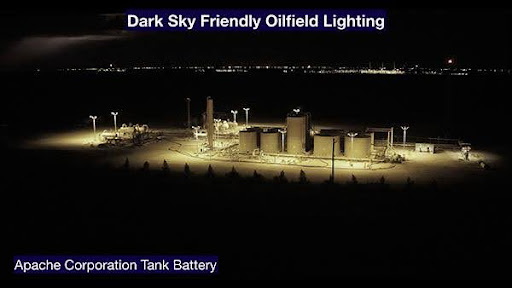GLO JOINS DARK SKIES INITIATIVE
Texas General Land Office requires its oil and gas lessees to follow the recommended lighting practices to protect our environment from light pollution

Texas General Land Office requires its oil and gas lessees to follow the recommended lighting practices to protect our environment from light pollution
The Texas General Land Office supports efforts by the University of Texas’ McDonald Observatory to minimize night-sky impacts by lights emitted by oil and gas facilities across West Texas. Through a campaign of education and awareness, the McDonald Observatory’s Dark Skies Initiative seeks to protect the beautiful, star filled night skies of West Texas for ongoing astronomical research and education.
As a participant in the Dark Skies Initiative, the Texas General Land Office (GLO) requires its oil and gas lessees to “use the highest degree of care and all proper safeguards to prevent pollution.” The GLO encourages its oil and gas lessees and our contractors in the Delaware Basin to review and follow the Recommended Lighting Practices approved by the Observatory.
Developed in collaboration with the American Petroleum Institute, the Permian Basin Petroleum Association and the Texas Oil & Gas Association, as well as other industry partners, these best practices can be found here.
As the second largest state in our nation, Texas is a vital part of the national economy and plays an enormous role in providing energy for all Americans. During production of our natural resources, we must take precautions to minimize environmental impact.
Reducing our light emissions from oil and gas facilities helps to:
- Increase visibility and safety by reducing glare.
- Reduce light pollution permitting astronomical research.
- Increase cost efficiency by reducing wasted light.
- Lessen disruption of wildlife migratory, feeding, and mating habits.
The GLO interprets “pollution” in this clause to include unnecessary or excessive lighting that is not reasonably needed for safety and security purposes. Like all of Texas’ natural resources, the dark night skies in West Texas must be conserved and protected.








